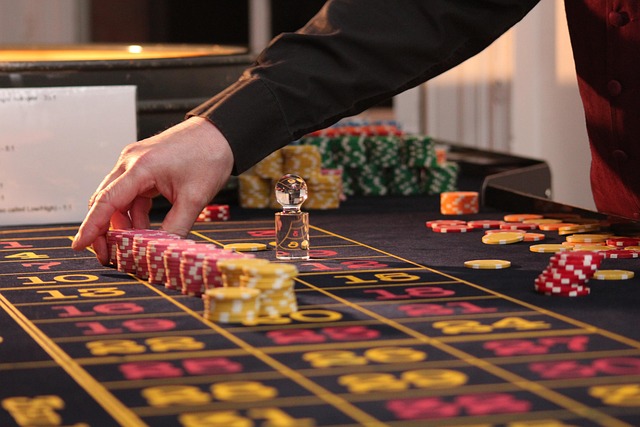Why These Stories Matter
We’re drawn to underdog victories for a reason. It’s not just about defying odds—it’s about watching someone rewrite the rules, in real time, with nothing but grit and clarity. These stories tap into something primal in us: the drive to overcome, to adapt, to survive where others fold. They aren’t coincidences. They’re roadmaps.
What sets these stories apart isn’t luck—it’s how risk is approached. The people who turn a losing hand into a win aren’t allergic to failure. They meet it, learn from it, and step back in smarter. They don’t bet haphazardly. They measure. They observe. They make chaos work for them.
And that’s the shift—from chance to strategy. The real story is about people who take the randomness of life and find angles in it. Gambler or not, that mindset hits home. It’s about staying sharp, sticking around long enough to see patterns, and turning the long shot into the plan.
Story 1: The Card Counter Who Outsmarted the System
He started out stacking shelves. Nights were slow, the pay was worse, and counting SKU codes didn’t do much for ambition. But when he clocked out, something flipped. He didn’t go to the bar or binge a show—he ran simulations in Excel. He was training his brain on probabilities, watching blackjack breakdown videos, and quietly building up a new kind of muscle: discipline.
The shift wasn’t cinematic. It was gradual. He learned to manage a bankroll the same way someone might maintain a savings plan—small stakes, strict loss limits, zero emotion. When friends laughed at his spreadsheets, he kept studying. Within eighteen months, he had a system. Legal card counting, casino hopping, lifeless hotel rooms, and weeks of breaking even. But then the wins started stacking, and the six-figure mark came into view.
The money was good, but the real reward was control. He mastered waiting. Knew when to walk. Understood variance. He never chased, never panicked, and never played outside the plan. That level of restraint made all the difference.
The turning point came quietly. One weekday afternoon after a session, he closed the lid on his laptop and realized the retail job was done. No announcement, no drama—just a shift from side hustle to full pursuit. From stock boy to strategist. The odds never really changed. He just got better at managing them.
Story 2: The Comeback After a Losing Streak
He once tracked odds like muscle memory, reading tables and people with the precision of a surgeon. Until he lost it. Not just a bankroll—he lost focus, routine, control. For an ex-pro gambler, that wasn’t just a cold streak—it was collapse.
The rise came slower than the fall. Brick-by-brick, he rebuilt a system rooted in discipline, not ego. He stopped chasing heat and started tracking data again. He reset his bankroll rules, cut sessions short, and redefined what it meant to play well—sometimes, that just meant walking away early. Risk became less about payday, more about process.
Mental toughness didn’t come from bravado; it came from structure. He leaned hard on tools most don’t associate with cards: journaling, mindfulness, basic cognitive-behavioral framing. It wasn’t sexy, but it worked. When the pressure mounted, the muscle memory returned—but this time, it was patience and perspective at the helm.
And then there was luck—or, rather, people’s obsession with it. For him, luck wasn’t magic. It was variance. It was noise. Most folks thought he turned things around because the odds finally smiled on him. They didn’t see the grind underneath.
He did win again—but not by chasing fortune. By mastering his own patterns, he restored a game no longer ruled by streaks, but by steady, deliberate play.
Story 3: Life Changed by One Big Win
Daniel Barrett had never stepped foot inside a casino before his 33rd birthday. A weekend trip to Las Vegas, a $20 bill, and one pull on a brightly lit slot machine—suddenly, he was $4.2 million richer. No card counting. No system. Just dumb luck, the kind most people only witness in viral videos or dream about during office lunch breaks.
But the real story started after the win.
The media came fast. Headlines, radio interviews, podcast appearances. Everyone wanted a piece of the guy who beat the odds without trying. He smiled through it, but the pressure baked in quickly. Financial advisors circled. So did former acquaintances. He had to make decisions—big ones—about money, privacy, and identity.
Barrett didn’t spiral, but he did recalibrate. He paid off his student debt, bought a modest house, and refused the eight-figure reality show offer in favor of starting a small renewable energy investment fund. Not glamorous, but stable. He knew luck got him here—discipline would be what kept him from losing it all.
That’s the difference right there: getting lucky is instantaneous. Keeping success is a continuation. Lottery winners flame out not because they didn’t hit big, but because they didn’t ask what they were actually playing for. Barrett did. He scaled back, took the long view, and stayed boring on purpose. Fact is, surviving a windfall can be harder than surviving a drought.
His reflection a year later? “The money gave me options. I chose not to blow them all.”
Sometimes, the rarest win is knowing when to step back.
Story 4: The Long Game—Turning Skill into a Career
Meet Alex Tran—quiet, calculated, and ten years deep into professional poker. No flashy bluffs. No wild bets. Just relentless math, habit, and execution. His edge wasn’t built overnight. It came from spreadsheets, studying tens of thousands of hands, and treating the game like business, not drama.
Alex doesn’t chase luck. He analyzes patterns. He tracks variance like a hawk and filters emotion out of decision-making. Emotional discipline sits at the core of his consistency. Tilt is expensive—he avoids it with routines: breathwork, journaling, and time off the felt. Mindset isn’t a bonus—it’s part of his bet-sizing formula.
His strategies focus on small advantages compounded over hundreds of sessions. Table selection, opponent profiling, exploiting micro-errors—boring to outsiders, but lethal to the bottom line. When trends shift, he doesn’t chase them; he builds new models, tests, adapts.
The long game, for Alex, is about outlasting chaos. And that’s what keeps the bankroll alive year after year.
(For more tactical wisdom from seasoned pros, check out this Interview with Professional Gamblers: Their Path to Success.)
Lessons from the Unlikely Winners
Look past the headlines and big dollar signs. What ties these stories together isn’t luck—it’s mindset. The people who win against the odds tend to carry a few things in common: resilience through long dry spells, clarity under pressure, and detachment from both success and failure. They don’t ride emotional highs. They don’t spiral on losses. They keep moving forward with steadiness.
There’s a thin line between gutsy risk and reckless impulse. The winners aren’t throwing Hail Marys—they’re making calculated moves, backed by logic, not adrenaline. They know the difference between taking a chance and gambling blindly.
More than anything, consistency beats intensity. It’s not the all-nighters or high bets that make the magic happen. It’s the long game: the daily process, the habit of reviewing strategy, staying emotionally even, and showing up even when the stakes feel low.
These aren’t just lessons for gamblers. They’re principles anyone can borrow. Build calm under stress. Think deliberately. Stick with a system—even when it’s boring. That’s how you make progress, one steady hand at a time.
Final Take
Winning doesn’t always come with fireworks. More often, it looks like quiet repetition, long nights, tough breaks, and the kind of persistence most people tap out on. The real edge? It’s not luck. It’s paying attention over time. It’s knowing your numbers, reading the room, and staying calm when everything’s tilting against you.
Odds make great enemies—until you realize they’re also feedback. When things get hard, most fold. But for those willing to keep showing up, to rethink the approach instead of chasing the rush, that’s where the actual win forms. It’s no myth: some of the best stories begin with a bad break, a terrible streak, or being told no too many times. If the odds seem lined up to block you, don’t back down. There’s a reason that story hasn’t been written yet. Maybe it’s yours to tell.


 Edna Jaggerlic contributes to mediagamblesaga with a sharp focus on digital media and the evolving world of gambling technology. Her writing breaks down industry shifts and innovations, making complex trends clear and accessible to readers.
Edna Jaggerlic contributes to mediagamblesaga with a sharp focus on digital media and the evolving world of gambling technology. Her writing breaks down industry shifts and innovations, making complex trends clear and accessible to readers.

